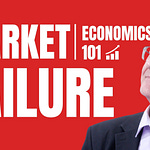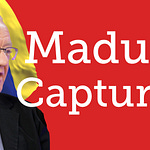In this Institute of Economic Affairs briefing, Director of Communications Callum Price interviews Professor Len Shackleton, IEA Editorial and Research Fellow, about his latest discussion paper "Liberating the Labour Market." The conversation examines how Britain's labour market operates, with around 65% of workers employed by private businesses, 20% in the public sector, and the remainder in charities and nonprofits. They discuss how increasing employment regulation over the past 40 years has created a growing "wedge" between what employers pay and what employees receive, with compliance costs now supporting nearly half a million human resources workers compared to far fewer four decades ago.
Professor Shackleton traces the evolution from the Thatcher-era trade union reforms of the 1980s to the current Employment Rights Bill, which spans 299 pages and carries an estimated £5 billion cost. He argues that employment mandates - requirements for employers to provide benefits like parental leave - function as stealth taxes that ultimately reduce worker pay over time. The discussion covers how these regulations have eroded Britain's traditionally flexible labour market advantage compared to heavily regulated European economies, with particular concern about the impact on youth employment opportunities as businesses face higher costs for hiring young workers.
The briefing concludes with Shackleton's reform proposals, including scrapping the apprenticeship levy and reviewing occupational regulation requirements that force workers to obtain formal qualifications for jobs like estate agency - a requirement unique to Britain among European countries. He warns that the Employment Rights Bill's union-friendly provisions, including extended strike mandates and easier recognition processes, could lead to increased public sector militancy. Despite these challenges, Shackleton maintains optimism about the private sector's ability to generate employment, pointing to the post-COVID job creation surge as evidence of business adaptability when not constrained by excessive regulation.













